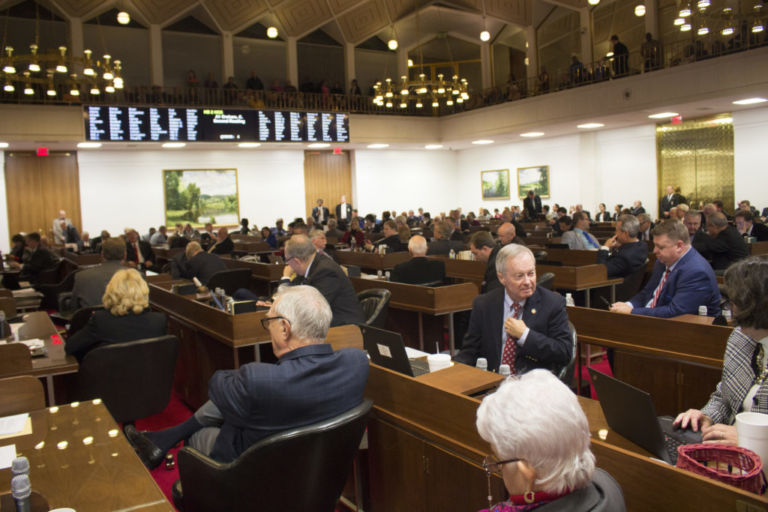Education is an important part of North Carolina’s 2025 legislative agenda, with lawmakers debating several bills that could affect classrooms, curricula, and student experiences across the state. Some of the most noteworthy education-related policies under consideration in the North Carolina General Assembly this session are as follows:
Protecting K–12 teachers and students from discrimination in schools
Following Pres. Trump’s executive order prohibiting federal funding of K–12 educational institutions engaging in discrimination, state lawmakers introduced a bill to eliminate diversity, equity, and inclusion (DEI) ideology in the state’s public school system. Senate Bill 227 (SB 227), which was ratified and sent to the governor on June 27, would prohibit schools from having DEI departments, personnel, or similar organizations. A key component of this bill would ban instructing students about or compelling them to profess belief in 12 “divisive concepts,” including the idea that any race or sex is naturally superior and that merit-based systems are unfair by nature.
The bill seeks to ensure that all members of the public school system uphold the equality and rights of each student and staff member under Article I, Section 1 of the North Carolina State Constitution and refrain from engaging in practices that may contradict that intent. In the last fiscal year, North Carolina received $3.1 billion in federal funding for K–12 education. To remain compliant with federal regulations and to continue receiving funds, policymakers argue, public schools should refrain from promoting discriminatory practices and forcing students and staff to agree with divisive ideas.
As my colleague Dr. Bob Luebke pointed out, DEI does not focus on ending discrimination; rather, its concept “elevates group identity at the expense of the individual,” which he calls a “fundamentally un-American principle.” Students should be celebrated for their individuality, not made to feel ashamed for their race, biological sex, or socioeconomic status. Many students report staying quiet in class or censoring their work to align with their teacher’s beliefs. Academic success shouldn’t depend on political conformity.
DEI initiatives create loopholes for ideological bias to enter into classrooms. SB 227 would help restore merit and neutrality in public education.
Limiting technological distractions in the classroom
Banning the use of cell phones in classrooms has received bipartisan support in the North Carolina General Assembly. The main goal of House Bill 87 is to reduce distractions in K–12 public schools by barring students from using cell phones during instructional time. The bill cleared the House almost unanimously with an amendment allowing students with documented medical conditions to use phones for health monitoring as needed.
Lawmakers say this policy is needed due to rising phone use during class. Local districts will determine how to enforce it, avoiding a one-size-fits-all approach, which is hardly the answer for problems such as these. Many local school districts already have a cell-phone policy in place.
Some parents support the policy, while others worry about access during emergencies. But with 67.7 percent of North Carolinians supporting a classroom ban, according to a recent Carolina Journal poll, the bill has broad backing. The widespread support on this bill is to be expected, as there is overwhelming evidence of cell phones creating more harm than good by remaining present in the classroom.
Lawmakers also included the key policy provisions from HB 87 in the 2025 House budget plan, showing that they see limiting phone use in schools as an important part of improving focus and learning.
Letting schools set their own calendars
Under the current school calendar law, the academic year generally starts no earlier than the Monday nearest to August 26 and ends no later than the Friday closest to June 11. Senate Bill 754 would provide school districts two options for when to start the school year: Either follow the current law or start a week earlier, finishing by the Friday before Memorial Day. School districts taking the second option must guarantee equal semester lengths.
Backed by Senate leader Phil Berger, R-Rockingham, this bill aims to create a common ground for school districts pursuing greater flexibility in their school calendars.
Since the passage of the 2004 school calendar law, parents, teachers, and school officials have pushed for earlier school starts. While the bill, at face value, appears to provide flexibility, it still provides districts with only two options. Because every district has unique needs, decisions like this are best made locally — not mandated by the state.
The post NC General Assembly tackles student protections, cell-phone use, and calendar flexibility first appeared on John Locke Foundation.
Click this link for the original source of this article.
Author: Kerrington Carswell
This content is courtesy of, and owned and copyrighted by, https://www.johnlocke.org and its author. This content is made available by use of the public RSS feed offered by the host site and is used for educational purposes only. If you are the author or represent the host site and would like this content removed now and in the future, please contact USSANews.com using the email address in the Contact page found in the website menu.








